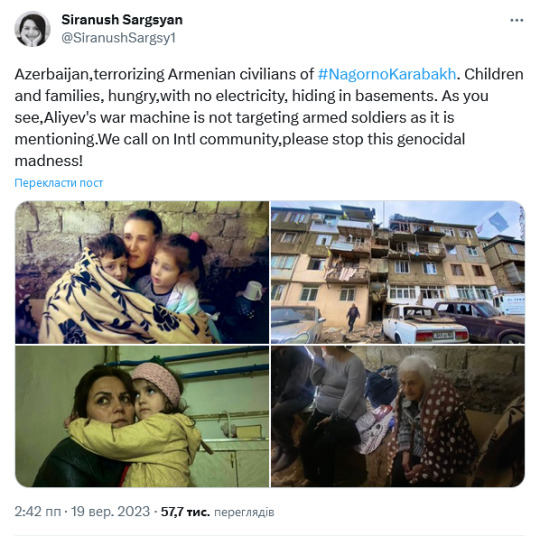#Azerbaijan-Armenia war
Explore tagged Tumblr posts
Text
It remains unreported that the far-right Heritage Foundation thinktank behind Project 2025, is also the most violently anti-Armenian and pro-Turkish/ pro-Azeri/ pro-oil thinktank in the entire DC establishment.
Heritage was a loud and gleeful cheerleader of Azerbaijan’s recent total genocide in Artsakh, and their guys openly favor the extermination of all Armenians in the region, because pipelines.
No news has done any basic reporting on this, like even summarizing what the Heritage Foundation death champions have publicly written about Armenia, because there is a broad political consensus to ignore and suppress anything related to Armenians across left right and center. 🤪
#project 2025#heritage foundation#armenia#azerbaijan#turkey#oil pipeline#genocide#armenian genocide#artsakh#ethnic cleansing#trump#election 2024#geopolitics#war crimes
628 notes
·
View notes
Text
When human rights violations go unpunished, history keeps repeating itself. Armenians are experiencing it right now, again, as the world stays silent, again.
you may call it the "disputed region" of Nagorno-Karabakh or something else. It is irrelevant, there are Armenian people living here, as there have been for thousands of years—who are being subjected to ethnic cleansing, are being indiscriminately bombed, destroyed, and erased.
This isn't about a “disputed territory”. It’s about fundamental human rights, including the right of Armenians of Karabakh to live freely and peacefully on the land of their ancestors.
What also hurts is that most don’t know/don’t care… because the media algorithm has not told them to care, so they don’t. Again.
2K notes
·
View notes
Text
""Putin – Fuck – Putin – Fuck" shouted at Russia's Embassy in Yerevan, Armenia, among other things this evening after Azerbaijan restarted it wars of aggression against the people of Armenia today. Russia had gotten itself designated as "peace keeper" in the conflict, but didn't do nothing to keep peace once the aggression restarted."
#vladimir putin#stop putin#fuck putin#putin#russia#embassy#yerevan#armenia#Azerbaijan#war is hell#war is a racket#wariscapitalism#waristerror#russian#ukraine#class war#classwar#jerkmillionaires#jerktrillionaires#jerkbillionaires#army#navy#air force#airforce#military#military industrial complex#eat the rich#eat the fucking rich#ausgov#politas
152 notes
·
View notes
Text
35 years ago today.
Ghastly stuff.
Feel free to reblog.
#dougie rambles#personal stuff#history#1990#armenia#azerbaijan#caucasus#anniversary#remembrance#war crimes#pogrom#armenians#Baku#feel free to reblog
7 notes
·
View notes
Text

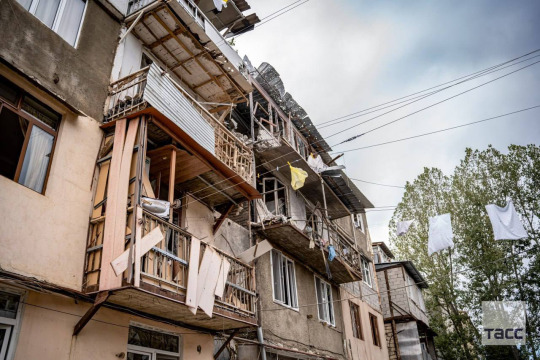
this is how Stepanakert, capital of Artsakh, looks right now. Bombing civilians is what the "restoration of the constitutional order" looks like for Aliyev? And the Armenian government chooses to do nothing and leave its people in danger
#rb this if you can#so that at least people not from Armenia will know about what is happening now#armenia#azerbaijan#war#stop war#nagorno karabakh#artsakh#armenian genocide#news#USA#russia#politics#nagorny karabakh
48 notes
·
View notes
Text
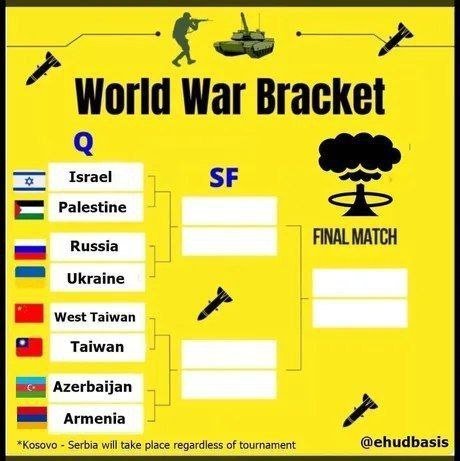
#meme#memes#shitpost#shitposting#humor#funny#satire#lol#funny memes#funny humor#funny meme#dark humor#comedy#war#israel palestine conflict#russia ukraine war#china#taiwan#azerbaijan#armenia#kosovo#serbia#geopolitics#irony#joke#parody#israel#palestine
36 notes
·
View notes
Text
Injuries arrive to the Naser hospital following an Israeli bombardment on the west of Khan Younis. 9.12.23
#palestine#free palestine#gaza#humanity#children#kids#save palestine#ramallah#khan younis#jericho#jerusalem#israel is a war criminal#israel is the killer!#pallywood#usa#uk#united kingdom#ukraine#armenia#azerbaijan#russia
30 notes
·
View notes
Text
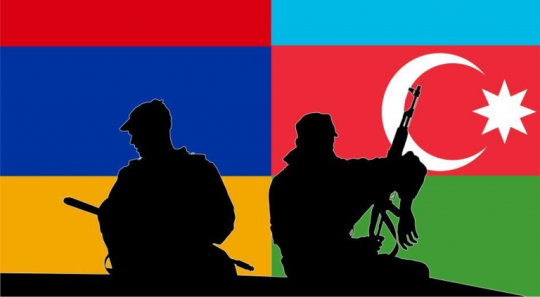
🇦🇿🇦🇲 🚨 HIGHLIGHTS FROM THE RESULTS OF NEGOTIATIONS BETWEEN ARMENIA AND AZERBAIJAN
Baku and Yerevan published a joint statement according to which:
🔸Azerbaijan releases 32 Armenian soldiers as a gesture of goodwill
🔸Armenia releases two Azerbaijani servicemen
🔸Armenia withdraws its candidacy to host the 29th session of COP-29 on climate change in support of Azerbaijan’s candidacy
🔸At the negotiations between the Aliyev Administration and Pashinyan’s Office, an agreement was reached to take tangible steps to strengthen mutual trust
🔸Baku and Yerevan confirm their desire to normalize relations and reach a peace treaty based on sovereignty and territorial integrity
Via@RiaNovosti
#source
@WorkerSolidarityNews
#azerbaijan#azerbaijan news#azeri news#armenia#armenia news#azerbaijian armenia negotiations#negotiations#conflict#azerbaijani news#azerbaijan armenia conflict#artsakh republic#artsakh#eurasia#politics#geopolitics#news#war#wars#war news#war update#world news#global news#international news#international affairs#international politics#global politics#breaking news#current events#politics news#political news
20 notes
·
View notes
Text
News Post
Palestine
Israel’s Knesset votes to reject Palestinian statehood | Israel-Palestine conflict News | Al Jazeera
Israeli FM bars Norwegian counterpart from visiting, citing Palestine recognition | The Times of Israel
US elections 2024: Biden campaign will blame pro-Palestine protests for violence and 'disorder' | Middle East Eye
(15) Updates Israel’s war on Gaza live: ‘Pattern of systematic mass killing’ continues (aljazeera.com)
Ukraine
Germany plans to halve military aid for Ukraine (bbc.com)
European leaders discuss migration and Ukraine at a UK summit as concern grows about direction of US | AP News
Ukraine Troops Abandon Village That Became Symbol of 2023 Counteroffensive - Newsweek
Russia advances in Ukraine but suffers losses, rows with Western powers | Russia-Ukraine war News | Al Jazeera
Sudan
Burhan and Abiy's secretive talks signal shifting Ethiopian position on Sudan | Middle East Eye
The Janjaweed Rebranded: Why international community’s calls to RSF fall on deaf ears? - Sudan Tribune
Hunger drives starving Sudanese to seek refuge abroad (voanews.com)
Military spending in DRC and South Sudan rose fastest in the world: society ends up paying the price (theconversation.com)
Other
The Poet Who Commands a Rebel Army - The New York Times (nytimes.com)
In Myanmar, Ethnic Armed Groups Are Joining Forces With Democracy Activists (foreignpolicy.com)
Haiti's prime minister orders gangs to drop weapons and promises to take back control of the capital | AP News
Putin's 'Mini-NATO' Ally Gets US Army Rep for Key Defense Role - Newsweek
Azerbaijan reopens its embassy in Iran as the countries try to ease tensions | AP News
#Palestine#Gaza#Free Palestine#Free Gaza#Justice for Palestine#Ukraine#Save Ukraine#Keep Fighting For Ukraine#Victory to Ukraine#Sudan#Dafur#El Fasher#Save Sudan#Sudan Civil War#Sudan Genocide#Israel#boycott israel#Fuck Israel#Germany#Europe#Ethiopia#Haiti#Armenia#Azerbaijan
5 notes
·
View notes
Text
Hobbes Was Right
The violence that has engulfed the world is the predictable outcome of the lack of a clear Soveriegn.
We had the Pax Romana.
Then we had the Pax Britannica...
In theory, we should now have the Pax Americana.
However, nobody thinks Joe Biden can act upon that principle.
The Leviathan's throne is empty.
There is no real deterrent. Nobody things the elderly, doddering old finger on the red button will actually press it.
This is why there is conflict in The Ukraine, in The Congo, in the Middle East, in the Orient...
There's no sheepdog to keep the wolves in check.
So we have reverted to a state of nature. A War of all against all.
Look at the rockets flying over Israel and Iran.
Homo Homini Lupus.
#philosophy#war#politics#principle#truth#hobbes#thomas hobbes#iran#israel#ukraine#russia#taiwan#congo#azerbaijan#armenia#artsakh#Nigeria#yemen#lebanon
4 notes
·
View notes
Text

84 notes
·
View notes
Text
Okay, so….
If we could NOT call for entire peoples and nations to be WIPED OUT in this day and age that would be great.
Thanks.
Keep that shit in the dock when you’re getting done for genocide please. At the least.
Or better yet, don’t do it at all!
#dougie rambles#personal stuff#vent post#political crap#fucking hell#genocide#many such cases#war crimes#fuck’s sake#israel#palestine#armenia#azerbaijan#bosnia#incitement#enough of this shit
7 notes
·
View notes
Text
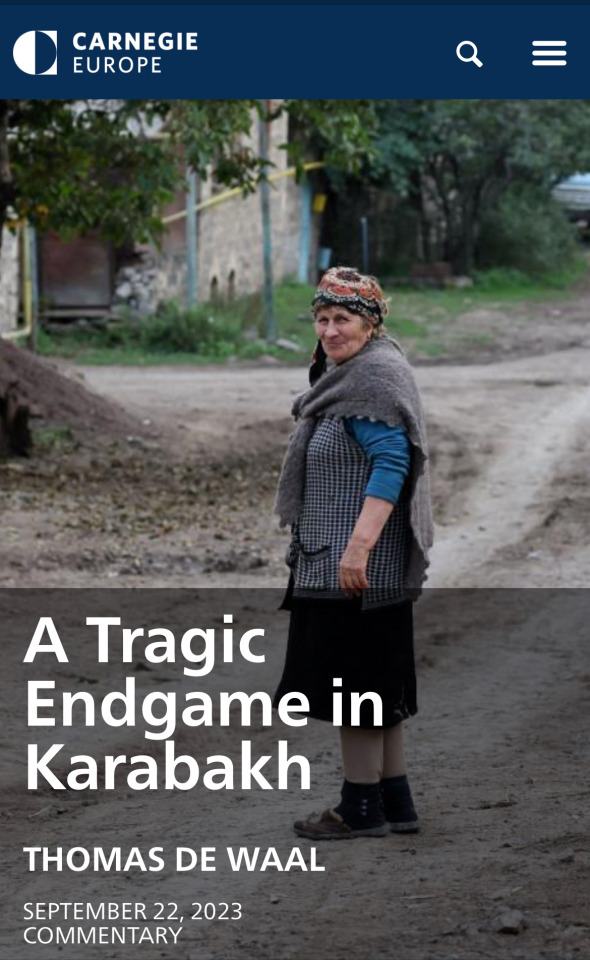
“Force, not diplomacy, has decided the course of this conflict since it first flared up during the era of former Soviet president Mikhail Gorbachev. (Some would say it originated well before, in the early twentieth century.) In 1988, the Karabakhi Armenians tried to break away from Soviet Azerbaijan and join Soviet Armenia in a dispute that developed into armed conflict. In the 1990s, the Armenians prevailed on the battlefield, occupying large parts of Azerbaijani territory and driving hundreds of thousands of inhabitants from their homes. In 2020, the Azerbaijanis reversed the situation, recapturing their lost territories and taking parts of Karabakh, too.
(…)
Diplomacy resumed, with the European Union, the United States, and Russia all negotiating between Armenia and Azerbaijan. The competing mediators made progress on bilateral issues, but the Karabakh issue remained unresolved. Armenian Prime Minister Nikol Pashinyan agreed, along with the rest of the world, to recognize Azerbaijan’s territorial integrity (including Nagorny Karabakh), but the vital question of the inhabitants’ rights and security remained unresolved.
The Karabakhis’ fate was probably sealed in April, when Azerbaijan established a checkpoint on the Lachin Corridor. This de facto blockade deepened in the summer, and the situation became desperate for tens of thousands of people remaining in Karabakh (estimates range from 50,000 to 120,000) who began to run out of food and medicine.
There is a geopolitical game here. A small Russian peacekeeping force was established in Karabakh in 2020. Moscow, which has always wavered between and manipulated both sides, had presented itself as the protector of the Karabakhis. President Vladimir Putin publicly told them his peacekeepers would guarantee their safe return from Armenia and continued residence in their homeland. But the Russian soldiers stood by as the checkpoint was set up on the Lachin road earlier this year, fracturing trust held in the peacekeeping force.
The context is that after Russia invaded Ukraine, the Armenian government began to pivot toward the West, and Azerbaijan—with which Russia shares a land border and an authoritarian model of government—looked like a more valuable partner.
(…)
The military offensive on September 19 caught Western officials by surprise, which became more understandable when news broke that Russian peacekeepers simply stood down and let the assault happen. The impression that there had been a side deal between Moscow and Baku deepened when Russian officials blamed Pashinyan and his pro-Western tendencies, not Azerbaijan, for the fighting.
(…)
In the darker European order of the past decade, where normative values and a multilateral framework have been devalued, Azerbaijan cares less about statements of condemnation from Western governments. The key thing is almost certainly the support of two regional powers and neighbors: the full backing of Türkiye and deliberate equivocation from Russia, which looks more concerned about keeping its military base on the ground in Azerbaijan and humiliating the government in Yerevan than in ensuring the rights of local Karabakh Armenians.”
“Armenian separatists in Nagorno-Karabakh agreed Wednesday to disarm and discuss reintegration with Azerbaijan following a swift but deadly assault by Azerbaijani forces, a capitulation that signals the end of decades of ethnic-Armenian rule in the enclave and the rapid decline of Russian influence in the former Soviet Union territories.
The terms of the cease-fire lay groundwork that could bring to a close the autonomous rule by the population of Nagorno-Karabakh, which was won from Baku in a bloody yearslong war after the fall of the Soviet empire.
(…)
“Russia’s leverage is much weakened by what’s happening in Ukraine. We see the Armenians moving away from Russia and Azerbaijan having a relationship with Russia that is more on its own terms,” said Thomas de Waal, an expert on Nagorno-Karabakh and senior fellow at Carnegie Europe, a Brussels-based think tank.
(…)
Azerbaijan says it plans to take back the enclave—which sits inside its borders but is populated almost entirely by ethnic Armenians who have ruled since the 1990s under the terms of a peace deal brokered by Russia. Skirmishes in the years since erupted into conflict in 2020 when Azerbaijan reclaimed areas around the territory. That battle ended, again with Russian arbitration, guaranteeing Armenian separatists control over Stepanakert and supply routes from Armenia, policed by Moscow’s troops. But peace has remained shaky with Armenia’s leaders complaining that Russia is no longer able to enforce the deal, distracted by its war in Ukraine.
A senior Azeri official said Baku had advanced on the enclave while Russia’s troops and arms are tied up in Ukraine. Baku had told Russia about its intentions ahead of time, the official said, but Moscow failed to act in part because it seeks regime change in Armenia. Armenian Prime Minister Nikol Pashinyan has increasingly criticized Russia’s capabilities as a guarantor of security and worked to forge stronger links with the West.
(…)
Russia, which still has a military base inside Armenia, has seen its influence steadily wane in the South Caucasus, a territory crisscrossed by oil-and-gas pipelines where the U.S., Turkey and Iran all vie for influence. Earlier this month, U.S. forces began joint military exercises that saw 175 Armenian soldiers training for 10 days with about 85 soldiers from U.S. Army Europe and Africa Command outside the Armenian capital of Yerevan.
(…)
The Azeri offensive is the culmination of a nearly yearlong effort to cut Nagorno-Karabakh’s links to Armenia through a de facto blockade that has led to shortages in food, fuel and medicine. In recent weeks, Azerbaijan gathered its forces around Nagorno-Karabakh.
(…)
Azerbaijan’s moves to weaken the enclave violated the terms of the 2020 cease-fire clinched by Russia, and Russian peacekeepers’ inability to prevent them caused Pashinyan to repeatedly criticize Moscow’s role as a guarantor of stability while it is bogged down in its invasion of Ukraine.
The criticism has caused a chill in Russian-Armenian relations and Moscow has broadcast scenes of protesters demonstrating outside Pashinyan’s office in central Yerevan this week. Russian President Vladimir Putin said Wednesday that his country’s peacekeepers were working in the region, and Russian commentators have placed blame for Nagorno-Karabakh’s capitulation squarely on Pashinyan’s shoulders.
Analysts say that Moscow is now looking to capitalize on any weakness in Pashinyan’s government in the hopes that one of the opposition parties, which it works with more closely, could come to power as a result of rising disapproval among Armenians over the integration of Nagorno-Karabakh into Azerbaijan.”
“Officially, the 1,700-square-mile territory is part of Azerbaijan and is known by its Russian name, which translates to “mountainous Karabakh.” But to Armenians and the Armenian-majority population of the region, it’s known as the Nagorno-Karabakh Republic, a de facto independent state that has been outside of Azeri rule since 1988.
For centuries, Muslim Azerbaijanis and Christian Armenians, both of whom call the region home, clashed over who should control it. Russian rule began in 1823, and when the Russian Empire dissolved in 1918, tensions between newly independent Armenia and Azerbaijan reignited. Three years later, Communist-controlled Russia set its sights on the independent states of the Caucasus region and began incorporating them into what would become the Union of Soviet Socialist Republics.
At first, it was decided that Karabakh would be part of the Armenian Soviet Socialist Republic (S.S.R.). Though historians differ on the reasons, the initial incorporation of Karabakh into Armenia is thought to have been a plan to ensure Armenian support of Soviet rule. But the Soviets’ new Commissar of Nationalities, Joseph Stalin, reversed the decision. In 1923 Nagorno-Karabakh became an autonomous administrative region of the Azerbaijan S.S.R., even though 94 percent of its population at the time was ethnic Armenian.
(…)
As the Soviet Union disintegrated in the late 1980s, the long-dissatisfied ethnic Armenians of Nagorno-Karabakh petitioned to become part of the Republic of Armenia. Azerbaijan responded by trying to crush the separatists in 1988, and clashes intensified in the region. In 1991, both Azerbaijan and Armenia declared independence from the U.S.S.R., and the regional clashes in Nagorno-Karabakh flared into full-out war.
As a result, more than a million people became refugees, and around 30,000 people, including civilians, were killed. Both sides engaged in ethnic cleansing during the Nagorno-Karabakh War—the Azerbaijanis against ethnic Armenians, and Armenian forces against ethnic Azeris. Despite the brutal humanitarian toll, negotiations between the sides repeatedly broke down.
In 1994, the newly independent nations of Armenia and Azerbaijan signed the Bishkek Protocol, a ceasefire brokered by Russia that left Nagorno-Karabakh in Azerbaijan. But though the fighting ceased, the two sides could not agree on a peace treaty.
For the last two and a half decades, Armenian and Azerbaijani troops have been divided by a contested “line of contact” laid out in the Bishkek Protocol. It has become increasingly militarized over the years, and has been called one of the world’s three most militarized borders. The Council on Foreign Relations says that given the close positioning and limited communication between military forces stationed there, “there is a high risk that inadvertent military action could lead to an escalation in the conflict.”
That’s of even greater importance because of the conflicted nations’ powerful allies. Azerbaijan is supported by NATO member Turkey, while Russia supports Armenia, making the area a potential conflagration zone. While Nagorno-Karabakh is small, the geopolitical stakes are high due to its proximity to strategic oil and gas pipelines, and its location between the powerful regional forces of Russia, Turkey, and Iran.”
21 notes
·
View notes
Text
In celebration of the November 5th Tumblr holiday, I’d like to turn our attention to one of the many events that happened on that day three years ago and give a little update on it..
The Nagorno-Karabakh Conflict in Armenia
On November 5th, 2020, System of a Down released two new songs (Protect The Land and Genocidal Humanoidz) after being in hiatus for 15 years in an attempt to raise awareness to the Nagorno-Karabakh Conflict. See, the regimes of Aliyev in Azerbaijan and Erdogan in Turkey were betting on the world being distracted by all the other events occurring at that time to make an attack on Armenia to claim it and Artsakh as their own.
The release of this new music was attached to a fundraiser to bring aid for displaced persons of Artsakh and to not let this attack go unnoticed.
As of November 5th, 2023, System of a Down has raised $281,091 in aid for Artsakh!!
But the fundraiser is still open! Click on the links to the music videos to find the fundraiser in the video description if you want to pitch in!
The attack in 2020 turned into a mere 44 day war that was won by Azerbaijan and ended in the displacement of almost 120,000 ethnic Armenians and the death of at least 6,500 people.
Even still, conflicts are ongoing. In the beginning of October of this year the last of the ethnic Armenians in Nagorno-Karabakh had to flee west to Armenia.
It’s another case of “ethnic cleansing” brought on by the predominantly Christian Muslim nation of Azerbaijan. And guess who’s backing them up? Turkey and, of course, Israel.
Since September of this year, peace efforts have been made by Azerbaijan, but the process is slow and the details of these peace talks are rather uncertain. They hope an agreement will be signed within the coming month, but response from Armenia has been elusive.
While this is progress, many ethnic Armenians and Artsakh compatriots are struggling with being forcibly displaced from their homes in Nagorno-Karabakh.
To provide aid to them, please visit the SOAD music videos and head to the description, or visit this link here.
Happy November 5th
#armenia#politics#current events#war#Azerbaijan#Israel#system of a down#November 5th#I know I know I made a legitimate post for once#I’ve been on tumblr for like 8 years and I’ve NEVER made a legitimate post like this#but I feel these things need to be said#something about the conflict in Armenia#it just gets to me#please reblog
15 notes
·
View notes
